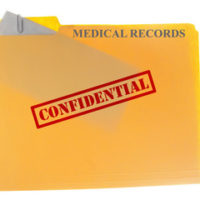The Role of a Treating Physician in Your Long-Term Disability Claim

When you’re filing a claim under your long-term disability insurance (LTDI) policy, you’ll need the support of a treating physician. Your doctor must not only document your diagnosis, prognosis and treatment but must also certify the limitations and work restrictions that keep you from working in your chosen occupation or any occupation. If all of these facts are not properly documented, if there is insufficient support for your claim from the medical records, these defects can be the basis for a denial of your claim for benefits.
Make sure your physician is generating the necessary documentation
Your medical record is the heart of your claim, and your doctor’s notes and reports are crucial to any application or appeal of a denial. You may find it hard to press a busy doctor to do “extra work” just to support your claim; you may feel embarrassed or not want to disrupt your relationship with your physician. Proper documentation is nevertheless vital. One solution is to have your LTDI attorney handle this aspect. LTDI lawyers work with doctors’ offices all the time. They will know what needs to get done and how to get it done, without putting you in the middle.
Some doctors, especially in a busy practice, may slough off the preparation of documentation and reports to a staff member in the office, and depending on the staffer’s experience with LTDI paperwork, this method can prove wholly inadequate to the success of your claim. Your attorney can review records from a claim standpoint and work with you and your doctor’s office to make sure medical documentation is accurate, complete and supports a finding of disability that meets the exacting standards of insurers. This way you can stay on top of the process BEFORE documentation is submitted to the insurance company, heading off potential challenges from the insurer.
You’ll need a history of medical treatment consistent with your disability
Your record must include more than just a diagnosis of your condition; you’ll need a detailed assessment of your functional limitations as they are related to your occupation. Many doctors work regularly with workers’ compensation or disability claims and understand the need for this type of documentation, but not all do. Your doctor is primarily concerned with treating your condition and not with helping you on a claim for benefits. Having an experienced LTDI lawyer who can interface with the doctor’s office and review documentation from a legal standpoint can be critical to the success of your LTDI claim.



